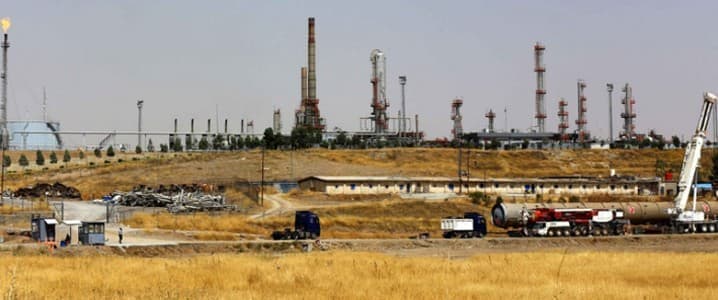
A significant shift in the global energy landscape is underway as Russian oil giant Rosneft reduces its operations in Iraqi Kurdistan. This development, which follows years of strategic maneuvering by Russia and China, could reshape energy dynamics in the region and beyond. The withdrawal signals a potential weakening of Russian influence and a possible reopening of opportunities for Western firms in Iraq.
The geopolitical stakes are high. According to an unnamed high-ranking official from the Kremlin, keeping Western companies out of energy deals in Iraq is crucial for diminishing Western dominance in the Middle East. This strategy has gained momentum since the United States unilaterally exited the nuclear deal with Iran in 2018, prompting Russia and China to intensify efforts to exclude Western firms from southern Iraq and the semi-autonomous Kurdistan region.
The U.S. and its allies view the Kurdistan region as a strategic base for monitoring Iran. The area acts as a critical security bridge between NATO member Turkey and the Middle East. Consequently, Rosneft’s downscaling of its operations is relevant not only to energy markets but also to broader geopolitical dynamics.
Impact of Rosneft’s Operations in Kurdistan
Until recently, Rosneft played a pivotal role in controlling vital oil infrastructure in Iraqi Kurdistan. This control extended to influencing oil flows from the Federal Government of Iraq (FGI) in the southern part of the country. After the Iraqi Kurdistan Independence Referendum in September 2017, Rosneft secured a significant foothold in the region through three major agreements with the Kurdistan Regional Government (KRG).
Initially, Russia provided the KRG with USD 1.5 billion in financing linked to forward oil sales. Additionally, Rosneft obtained an 80% working interest in five oil blocks and a 60% stake in the crucial Iraq-Turkey Pipeline (ITP) by committing to invest USD 1.8 billion to enhance its capacity to one million barrels per day.
The ITP, which is the only pipeline capable of exporting oil from Iraq to the West, had a nameplate capacity of 1.6 million barrels per day. However, the FGI-controlled pipeline often faced disruptions due to sabotage. In response, the KRG constructed its own pipeline to bolster oil exports.
The Kremlin’s strategy in Iraq extends beyond Kurdistan. Russia has historically aimed to create chaos and then position itself as a peacemaker among conflicting factions. A key mechanism for exerting its influence has been the 2014 “Budget Payments-for-Oil” agreement, which required the KRG to export oil through Iraq’s State Organization for Marketing of Oil (SOMO) in exchange for budget payments from Baghdad.
This complex agreement was fraught with tensions, given the already strained relations between the KRG and the FGI. The involvement of Rosneft complicated matters further, leading to a complete shutdown of the ITP in March 2023 as negotiations faltered.
Future Prospects for Iraq’s Oil Sector
Rosneft’s recent decision to reduce its stake in the Kurdistan Pipeline Company (KPC) from 60% to 49% reflects the changing dynamics in the region. The KPC operates the pipeline network connecting oil fields within the Kurdistan region to the border metering station at Fishkhabur, where it links with the ITP. This reduction comes amid increasing pressure from U.S., European, and British sanctions targeting Rosneft and Lukoil, which also restrict their operations in Iraq.
These sanctions, aimed at curtailing Russia’s financial capabilities amid its ongoing conflict in Ukraine, have prompted Lukoil to withdraw from Iraq’s West Qurna 2 oil field and Block 10 assets swiftly. Analysts view these moves as a significant turning point in the West’s strategic response to Russian and Chinese encroachment in the region.
As Iraq navigates its energy future, the diminishing influence of Rosneft may open the door for Western companies to regain a foothold in the country. The prospects for resuming oil exports through the ITP appear more favorable as Russia’s grip loosens, potentially leading to increased stability in Iraq’s oil sector and broader energy markets.







